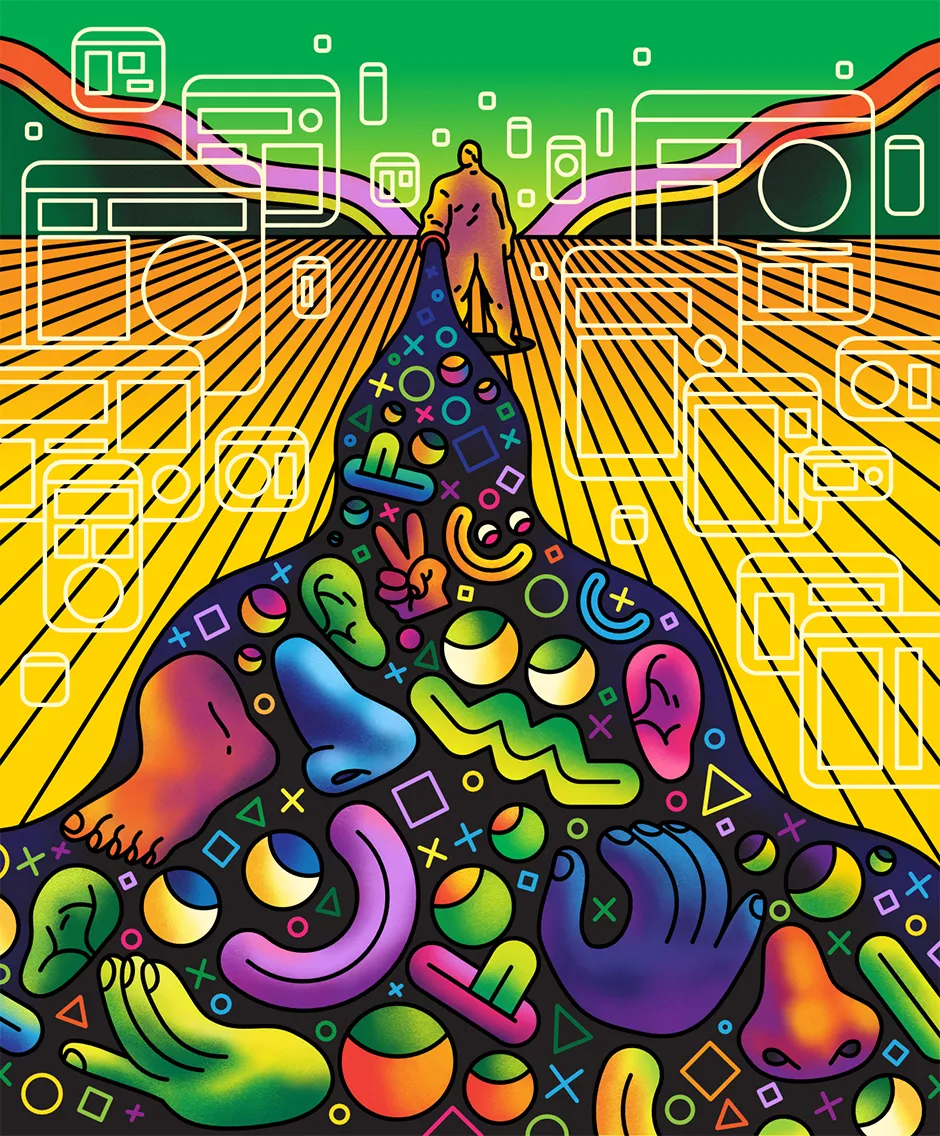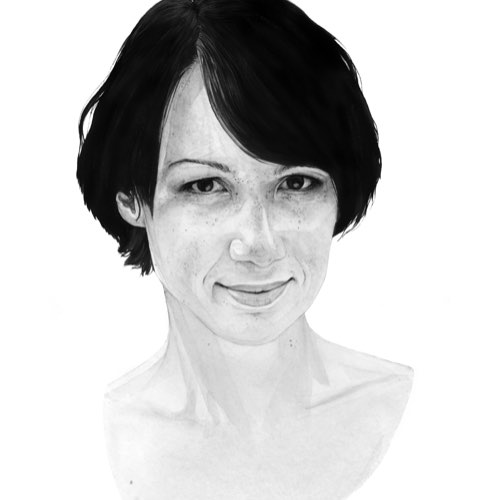When I think back to it, it was a very strange time. I was lying on a ward bed in a disused hospital on the outskirts of Glasgow. My face was dripping with fake blood and slime. The lights were hot. We’d been there for seven hours.
But after many random sleep-deprived moments of weirdness, a rubber head burst through my chest – my cue to gasp out the last few lines of a review of the video game Aliens Versus Predator. All of this for the service of a few night owls who’d tuned into Channel 4’s late-night experimental strand, 4Later.
The TV show I was working on was called Bits, and it was 1999. Our team was trying to make a weekly programme of broadcast quality within an infinitesimal late-night budget. There was a lot of creativity and very few rules, mostly because no one was watching. The show went out way after people’s bedtimes on random nights of the week at random times in the schedule. It was perfect nocturne fodder.
There’s a certain kind of media that plays to a middle-of-the-night crowd. It’s dreamy. It’s incongruous. It’s usually where new ideas bounce off others and form organisms that eventually become prime time.

And that’s because the intimate, anything-can-happen night-time feeling is at the other end of the spectrum from the logical and play-tested stuff that’s appropriate for daylight hours. The cloak of night gives us permission to skulk around and observe, unobserved.
As writer Helena Fitzgerald described it in a recent episode of Digital Human, it’s the emotional quality of being the last two people awake at a slumber party. And a long time ago, around the same time as I was covered in goo, the place she went to feel it at any time of the day or night was the internet.
For a generation who grew up with the virtual space as somewhere new, the experience of ‘night’ became detached from the clock. It was always the middle of the night somewhere, and this suffused the things people made and shared on websites and instant messengers. It was an inconsequential space of extreme creativity – of art, of ideas and of the self.
Read more from Aleks Krotoski:
- "We are hungry for face-to-face contact. Psychology has shown that virtual contact is just as good... or even better"
- Hitting the wall: Can you change your mindset to endure lockdown more successfully?
- Today’s digital tech doesn’t replace human interaction – and that will lead to innovation
Fast-forward to now and the internet has banished the night. We are bombarded by 24-hour news and compelled to pay attention to ever-refreshing social media updates. Our online selves are extensions of our offline selves – conceptually and practically. Companies track our data and judge us by it. It’s always the middle of the day somewhere, and you really don’t want to descend into the nightmares where it isn’t.
We need night-time encounters to whisper our secrets and share our feelings and express our fantasies. We need to know that almost everyone else is asleep to feel like we are sharing a different reality with the other people who are also awake. The internet used to be where that tribe gathered. Now, we have to go offline to find it, and slip under the covers with our torches and our ghost stories to hush the din of the daytime that is everywhere around us.
- This interview first appeared in issue 357 of BBC Science Focus Magazine–find out how to subscribe here

